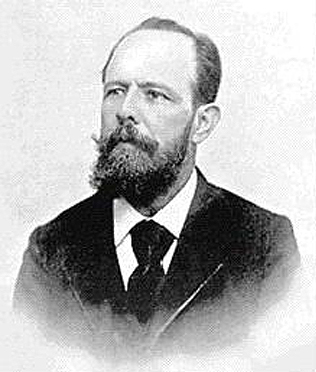- Ignacio Andrade
Infobox_President
name=Ignacio Andrade Troconis

order=36thPresident of Venezuela
term_start=February 28 ,1898
term_end=October 20 ,1899
predecessor=Joaquín Crespo
successor=Cipriano Castro
birth_date=birth date|1839|7|31|mf=y
birth_place=Mérida,Venezuela
death_date=death date and age|1925|2|17|1839|7|31|mf=y
death_place= Macuto,Venezuela
party=Liberal Party
spouse= Maria Isabel Sosa Saa|
 |
|Ignacio Andrade Troconis was
President of Venezuela 1898–1899. A member of thePartido Liberal Amarillo , his election was declaredly clouded by fraud.Early life and career
Ignacio Andrade was born in Mérida,
Venezuela ,July 31 ,1839 and dies in Macuto,Venezuela ,February 17 ,1925 . In spite of his extensive political career and his education, never obtain the leadership and political preeminence of personages likeJoaquín Crespo and José Manuel Hernández, fact that was demonstrated in the amount of conspiracies and movements that he had to confront in his roll of President of Venezuela(1898-1899), was his father the general "José Escolástico Andrade", and his mother, the merideña "Juana Troconis".The place and date of his birth have not been able to be find because his baptism document has not been located. By such reason, in the electoral process of 1897, one commented with insistence that Andrade was born in the Zulia State and the Venezuelan Chancellery even published a biography in a Spanish magazine of 1897, affirming that: “… "was born in Maracaibo in July 31, 1839…”." Also, competing sectors to the candidacy of Ignacio Andrade got to comment that he could not aspire to the presidency of Venezuela, by have been born in
Colombia . Nevertheless, his document of death was located in the Main Registry of Caracas, and indicates that: “… according to information contributed by his son Jose Andrade, of 35 years of age, general Andrade was natural of Mérida […] and had passed away at the age of 85…” President of the Falcón state (1883–1885), contracted marriage with "Maria Isabel Sosa Saa" (February 14 ,1885 ). Senator by the Falcón state, that included the present territories of Falcón and Zulia (1886), exerted the positions of governor of the Federal District (October 1892), minister of Public Instruction (March 1893), delegated by the Great State Miranda (April 1893), Public Work minister (June 1893) and president of the Great State Miranda (1894–1897). Evolving in this last position, untilSeptember 1 ,1897 , when he was proposed like the official candidate of the government ofJoaquín Crespo for the presidential elections.Andrade's presidency
In agreement with the Constitution of 1893 the voting process was direct and secret. Andrade obtained 406,610 votes against the favorite of the opposition, general José Manuel Hernandez, known as "El Mocho", that only obtained 2,203; the elections were labeled as fraudulent. Consequently, the electoral triumph of Andrade took place within a political climate of crispation, which ended with the insurrectionary movement led by the Mocho Hernández, known as "La Revolución de Queipa". During the warlike development of combat operations that began in
February 23 ,1898 , and extended untilJune 12 of the same year, an unexpected event took place that negatively affected the government of Andrade, which was the death ofJoaquín Crespo . In effect, as a result of Crespo's disappearance from the political scene after his death in "Mata Carmelera", inApril 16 ,1898 , a great amount ofcaudillos wanted to take power, including general "Ramon Guerra", who in his position of Military Minister captured Mocho Hernandez, and soon he was in arms against the government of Ignacio Andrade.Post-Presidency
Aside from the insurrectionary movements that Andrade had to confront, during his administrative management economic difficulties were experienced, accompanied by the distrust of certain political circles and an epidemic of smallpox. Finally, Andrade was overthrown,
October 19 ,1899 byCipriano Castro and his "Revolución Liberal Restauradora", which prevailed without the governmental forces delivering a greater attack to stop them. Once outside of the presidency, Ignacio Andrade went toPuerto Rico , where he wrotes lines about the movement that overthrew him, titled ¿Porqué triunfó la Revolución Restauradora?, published 30 years after his death (1955). After being amnestied (November 19 ,1903 ), he served on the government ofJuan Vicente Gómez , who paradoxically was part of the revolutionary movement that expelled him from power, promoting him las minister of Foreign Affairs (1916–1917) and Domestic Affairs (1917–1922), in the executive cabinet ofVictoriano Márques Bustillos .References
* [http://www.gobiernoenlinea.gob.ve/venezuela/perfil_presidente21.html Ignacio Andrade] — Official biography.
* [http://www.venezuelatuya.com/biografias/andrade.htm Ignacio Andrade]
Wikimedia Foundation. 2010.
